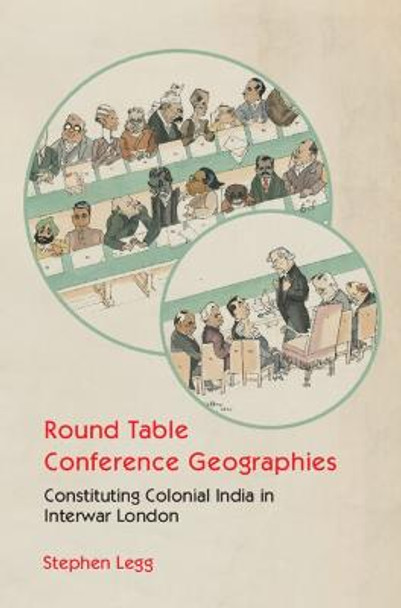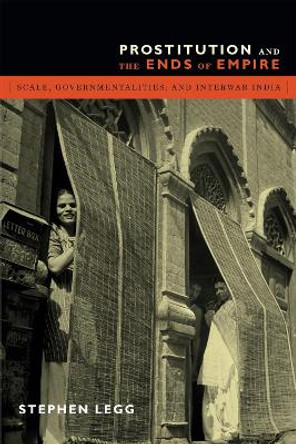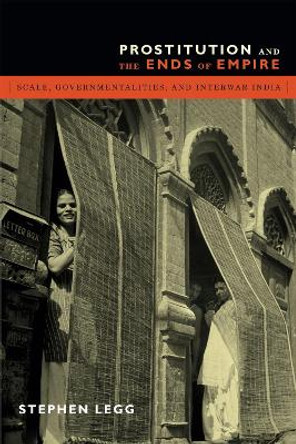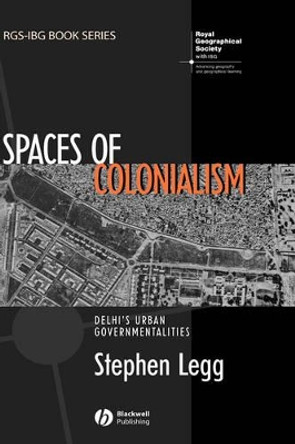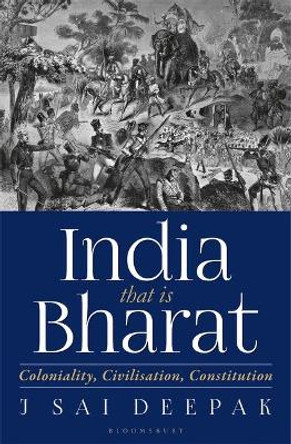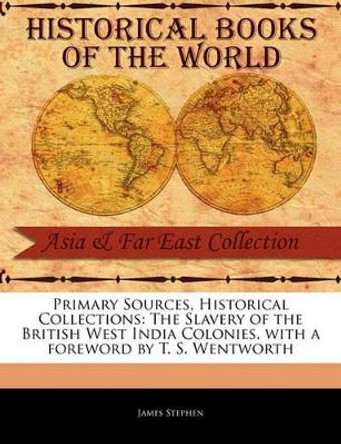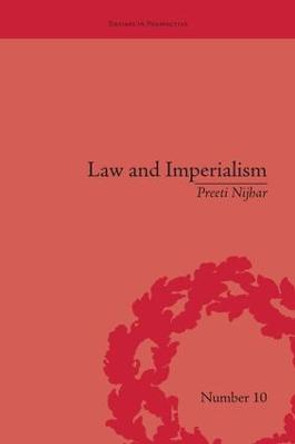Description
Explores the spaces and events of the interwar Round Table Conference which drafted the blueprint for colonial India's constitutional future.
About the Author
Stephen Legg is Professor of Historical Geography at University of Nottingham, England. He is a specialist on interwar colonial India with a particular interest in the politics of urban space within imperial and international frames. He has analyzed these spaces and frames through drawing upon theoretical approaches from memory scholarship, postcolonialism, political theory and governmentality studies. He published the co-edited volume (with Deana Heath) South Asian Governmentalities: Michel Foucault and the Question of Postcolonial Orderings with the Press in 2018. Some of his other publications are Spaces of Colonialism: Delhi's Urban Governmentalities (2007), Prostitution and the Ends of Empire: Scale, Governmentalities, and Interwar India (2014) and the edited collection Spatiality, Sovereignty and Carl Schmitt: Geographies of the Nomos (2011).
Reviews
'To think about the geographies of the Round Table Conference is to appreciate that what occurred 'behind the scenes' was absolutely consequential to 20th century global imperial history. Legg shows how critical a variety of infrastructures - from palaces, flats and tearooms to gavels, coat racks and washstands - were to both official and subaltern diplomacy during this watershed interwar event. If London was the great unacknowledged delegate to the conference, its most public and most intimate spaces are key to understanding the role of cultural relations in the history of India's pathway to full political sovereignty. Thanks to Legg's amazing footwork, we have a whole new understanding of all the rooms where it happened.' Antoinette Burton, University of Illinois Urbana-Champaign
'Legg radically reimagines the Round Table Conference (RTC), often relegated to a stodgier sideshow of state-making and nationalism on the ground, by focusing on the politics of representation, labour, infrastructure and space that went into making the RTC. In doing so, he shows how Indian delegates at the RTC innovated new spaces of internationalist politics and challenged Western stereotypes of backwardness. Elegantly crafted, and engagingly written, Legg offers us rich theoretical tools and incisive methods to understand the production of internationalism in the 20th century.' Rohit De, Yale University
'This compelling, beautifully written and detailed account of the Round Table Conference brings together geographies of colonialism and diplomacy to exemplify how colonial democracy was practised. Stephen Legg brings to attention a largely overlooked conference and the deliberations that occurred and extended beyond the meeting venue itself, providing captivating insights into how representation, communication and decision-making unfolded. The book includes evocative details of how the Indian delegates negotiated the simultaneously racist and hospitable landscape of 1930s London and draws on archival material to illuminate their experiences of being lavishly entertained at tea parties, receptions and soirees. Legg offers a distinctly geographical exploration of a unique historical event that highlights how liberalism and imperialism were being played out in the interwar period. In bringing together geo-political debates with the intricacies of practices and encounters, this book both delights and challenges the reader.' Uma Kothari, University of Manchester
'Legg helps us understand the contentious relationship between empire and democratisation through an underappreciated forum - the conference. With forensic and careful argumentation, Legg provides an intimate political geography of power and representation.' Robbie Shilliam, Johns Hopkins University
Book Information
ISBN 9781009215312
Author Stephen Legg
Format Hardback
Page Count 375
Imprint Cambridge University Press
Publisher Cambridge University Press
Weight(grams) 630g
Dimensions(mm) 236mm * 162mm * 28mm

